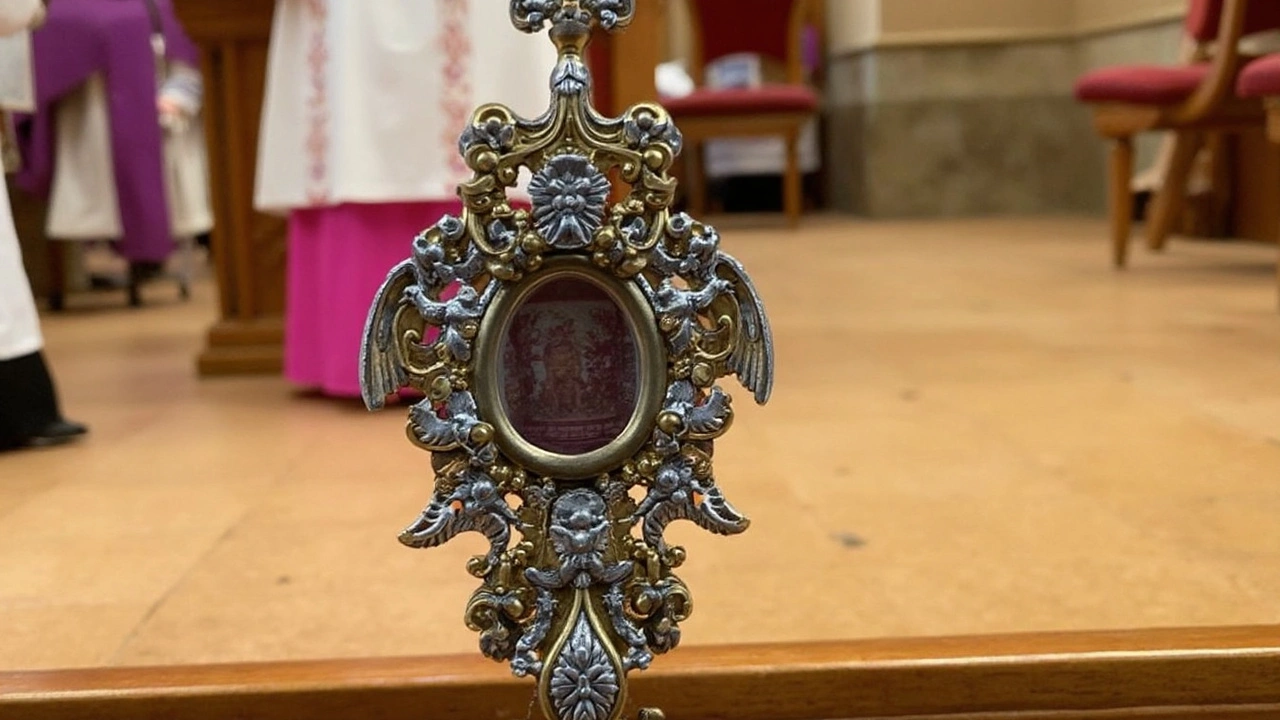Crackdown on Online Trade of Carlo Acutis Relics
The digital age has made almost anything available with a click, but some lines can’t be crossed—even online. Prosecutors in Perugia have launched a formal investigation into the shady world of Carlo Acutis relic sales after Church officials blew the whistle. The story kicked off when Bishop Domenico Sorrentino, who oversees the famed Assisi shrine, alerted authorities to online listings selling what’s claimed to be the hair and personal effects of the future saint.
The internet auctions, many run by shadowy sellers hiding behind usernames, asked for steep prices—sometimes as much as 2,000 euros for a supposed first-class relic (like a hair). Other goods, including bits of cloth and handwritten notes attributed to Acutis, were listed on craft-oriented platforms such as Etsy for around £85 each. Some vendors even promised certificates of authenticity, adding an allegedly official gloss to their offers.
But Church rules are clear. Selling first- and second-class relics—that includes bodily remains or anything closely tied to a saint’s life—just isn’t allowed under canon law. They can only be gifted, never sold. That's why every time an ad pops up offering a hair or fragment of clothing for cash, it amounts not just to a breach of rules, but an act the Church sees as deeply disrespectful.
Blessed Carlo Acutis: A Modern Pilgrim in the Digital World
This isn’t just any relic scandal. Acutis, a British-born Italian teen who died in 2006, is set to become the Catholic Church’s first millennial saint. The Vatican has scheduled his canonization ceremony for April 27, 2025, and that attention has supercharged fan devotion—and, apparently, some people’s entrepreneurial instincts. Pilgrims flock to his tomb in Assisi’s Shrine of the Renunciation, and demand for memorabilia is red-hot on the internet.
Bishop Sorrentino is not taking the issue lightly. He fired off the official complaint, warning that even if the hair strands and cloth scraps are elaborate fakes, selling them is potential fraud and a slap in the face to religious believers. He points out these sales don’t just risk trickery—they play games with people’s faith, exploiting the genuine devotion of ordinary pilgrims.
Prosecutors are now working to figure out exactly what was being sold. Are they real relics, snatched without permission? Are they fakes made to scam the faithful? Or could they be a mix of both? The Church, meanwhile, is on guard: getting Vatican approval for the transfer of body parts or authenticated relics is mandatory, and those rules aren’t changing to suit digital marketplaces.
The whole affair is a warning shot about the clash between digital commerce and spiritual tradition. There’s a difference between honoring saints and turning their memory into a cash cow, and as Acutis’s sainthood draws near, that tension’s set to keep growing.
